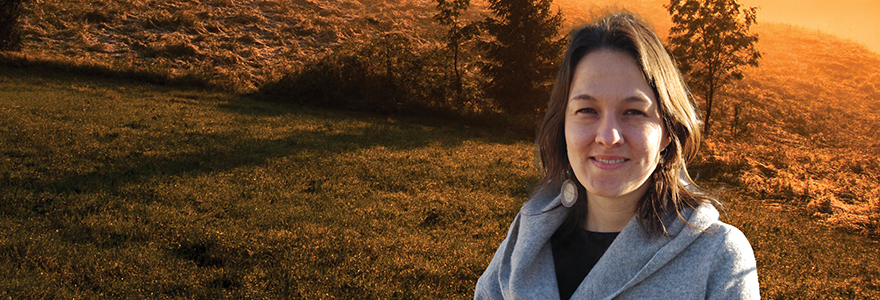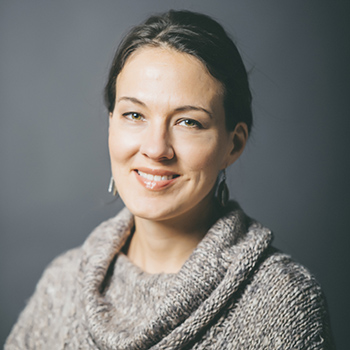New Chair seeks to merge two disparate worlds

By Cam Buchan
Nicole Redvers’ work is a delicate dance between two health perspectives that, till this point in time, haven’t quite been in step with each other.
Redvers comes to Schulich School of Medicine & Dentistry as associate professor, Department of Epidemiology & Biostatistics, and brings with her a new field of study as the University’s Western Research Chair and Director of Indigenous Planetary Health. It’s a transdisciplinary umbrella of research focused on Indigenous health and the translation of Indigenous knowledge, methodology, evaluations and perspectives into Western medicine.
She will also teach an Indigenous health course, which focuses on the same material, starting in January 2023, as part of the Master of Public Health program.
“Most of my current work has focused on planetary health – what some people may know more commonly as climate change and health,” said Redvers, who began her new role on Nov. 1. “I like to take the ‘planetary health’ approach because it takes the viewpoint of the Indigenous community – about the connection between planetary and personal health – because that is the way our communities view health. They are interconnected.”
Her holistic approach addresses the impact of human disruptions on our earth systems and the resulting effect on all life on earth.
“With the multiple crises we face – whether it’s climate change or the pandemic or any other public health issue – the fundamental barrier to providing effective Indigenous care are the two very different worldviews: The Indigenous perspective and the Western perspective,” Redvers explained. “It’s a delicate dance of translating knowledge between two systems for the overall well-being of both communities.”
The dance has been successful in getting Indigenous perspectives into Western-based deliverables. For example, Redvers’ work in microbiology has focused on transforming Indigenous narratives into Western language and demonstrating how the result positively affects the development of public health solutions on the ground.
At Schulich Medicine
As Chair, Indigenous Planetary Health, Redvers’ work will seek to re-establish and reconnect our health and wellness systems to align with the planet’s health through the lens of Indigenous traditional knowledge.
“While early applications of planetary health and sustainable health care have largely been focused through a Western anthropocentric lens, the emerging Indigenous planetary health presence is contextual to place, ecocentric and has a deep understanding of the fundamental interconnection between Indigenous peoples’ health and the health of the planet.”
Redvers attributes her progress to the teaching and influence of her Elders, who have helped her overcome the challenges she has faced, “and to understand that to get to the other side of the river is a journey of many steps. If you make a mistake and get stuck in an eddy, you must regroup and turn around so that you’re going in the direction you should be down your river.”
Redvers believes these narratives of interconnectedness between the planet and people are becoming more important, and a critical step in healing both.
“I would like to see is a healthy world for my children and for my community, and for knowledge to be passed on within communities for the benefit not just of those communities but for all.”

Connections
Staying connected to her family and community is a challenge for Redvers, who is a member of the Deninu K’ue First Nation in the Northwest Territories and has been a long way from home for the last several years. But she visits her family there as regularly as she can and has maintained important relationships with Indigenous faculty. She also stays connected through a charity she helped found called the Arctic Indigenous Wellness Foundation, which offers traditional counselling and healing as well as cultural programming, education and teaching workshops to the Indigenous community there.
Redvers comes to Schulich Medicine from the University of North Dakota, where she was assistant professor in the Department of Indigenous Health and the Department of Family & Community Medicine at the School of Medicine and Health Sciences. While there, she was instrumental in developing the first doctoral program in Indigenous health offered in the U.S. or Canada.
“I'm excited by the effort Western has put forward toward Indigenous initiatives and it’s nice to see some of the great work that's being done,” she said. “I’m looking forward to starting the journey at Western.”









